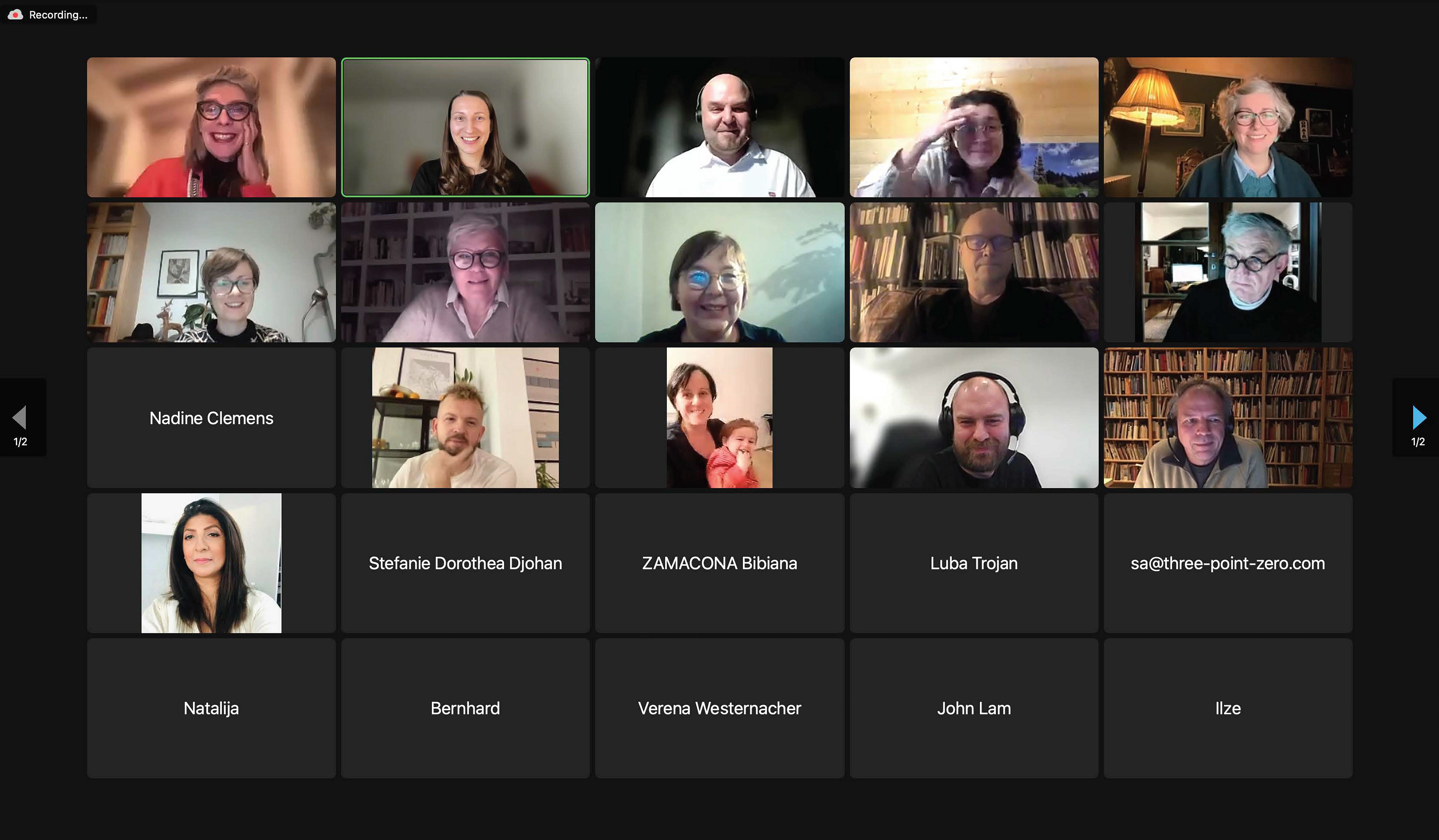
BEDA Wide Open Door Dialogue 'Are Designers Superheroes?', 25 January 2024
Event Report of the WODD 'Are Designers Superheroes?', 25 January 2024
On 25 January we had a successful BEDA Wide Open Door Dialogue session with expert speakers from different fields that led to an engaging discussion. The topic of the future of designers is broad and important, and the record-high registrations to this edition of the WODD are proof of that. We had more than 40 attendees and the fact that 60% were not BEDA members just again proves that this topic is relevant throughout the whole design industry.
Recording: drive.google.com/file/d/1U646rm-HNupqtr8AQi_7Je6hWJGy2p2K/view?usp=share_link
Note: to access the recording please request access.
Summary
Are designers superheroes? That was the question at the online table. In her introduction, Christina Melander, BEDA president, spoke about the courage designers need to create irresistible designs for the greater good. Designs that not only add value but also carry meaning.
Inspirational talks started with Kornelia Dimitrova of the Foundation We Are (Eindhoven), who introduced their institute for Unexpected Collaborations and the Collaborations for the Future project. This initiative delves into effective commissioning and funding models that support collaborations between climate scientists and designers, exploring the question: How can we imagine life in the time of climate change? The funding aims to provide the space to break free from assumptions, discover shared interests, and expand knowledge, ideas, and networks.
Tiia Vihand, director of the Estonian Design Centre, explained how the centre supports smaller Estonian design agencies through programmes offering broader job and assignment opportunities. She highlighted the European-funded Estonian programme of masterclasses by designers within the Tourism sector. The objective was to utilise service design and digitalization of services to develop better user-centred services, enhance the export and innovation capacity of companies, and increase the attractiveness of tourism services in foreign markets. Nearly 50 companies completed the masterclass programme from January 2022 to June 2023.
Isabelle Verilhac, past BEDA President, represents BEDA in various European projects like the Large Pact for Skills, with a focus on the Creative and Cultural Industry. This programme aims to support a fair and resilient recovery while accelerating Europe’s digital and green transition. She emphasised the need to bridge gaps and break through sector silos in the scaling-up process from a European level to regional and, ultimately, local ecosystem partnerships. More details can be found in the Manifesto.
Parallelly in the chat, the participants discussed how design can contribute to sustainability and social responsibility, emphasising the shared responsibilities of designers and companies in creating ethical products. They discussed the necessity for design to evolve and incorporate aesthetics that promote sustainability, suggesting that design should extend its influence into other disciplines for broader impact. Challenges in teamwork and the importance of mentorship in the design field were highlighted, alongside the need for design services to be more transparent and accessible. The conversation underscored the continuous need for learning and adaptation in design practices to meet current and future challenges.
One of the hosts of the session, Ingrid van der Wacht personally admires designers for their superpowers — bringing ideas to life, exploring ethically, and creating with a sincere dedication to doing good and supporting positive processes and people. As one participant in the session wrote,
“Yes, designers are superheroes. Design is all about empowering the end-user, and what’s a bigger power than empowering others?“
Ingrid van der Wacht summarised the conversation with a short personal story that provides inspiration and orientation for her next goals in supporting a sector often confused with fine arts and culture.
Picture this: you, a designer, following your curiosity, bravely venturing into job opportunities or assignments in companies, institutions, and governments. It’s a dark forest (of silos) where you, as a designer, can easily get lost or encounter hungry wolves. Communication and collaboration are key as you navigate this forest as a sensitive, empathetic, zealous, creative person. You may encounter those trained to exploit codesigners’ weaknesses or insecurities to achieve their strategic goals.
Despite the challenges, you persevere, full of positivity and optimism, making use of programmes with often too short expiration dates or projects that lack sufficient funding. You engage in collaboration processes where your contributions may not be taken seriously, given the conditions of work and pay.
Could it be that as long as you’re not asking for serious money, client doubts persist? Regardless of delivering inventive and trailblazing solutions, services, and concepts? Is it necessary to attend business school to acquire negotiation skills, conduct return-on-investment analyses, and better estimate and profile your value to demand fair pay? Or should clients be trained to better understand the immense value design can bring to development and improvement processes and be fair in their offerings?
A change of culture is needed – also in the cultural sector as Kornelia Dimitrova (Foundation We Are) said. A change that implies stretching your working field and the type of work you can deliver. Like the graphic designer who was thought to be only working on fonts and layouts, but demonstrated to be capable of translating archives into narratives that brought dust-covered documents to life.
Let’s work together as BEDA, as people from the sector, maybe we do not need a year to come to a plan that will lead to serious investments, to programmes with long horizons leading to system change and good understanding and respect for what designers can bring to the C level tables.
Last updated: 20/05/24
